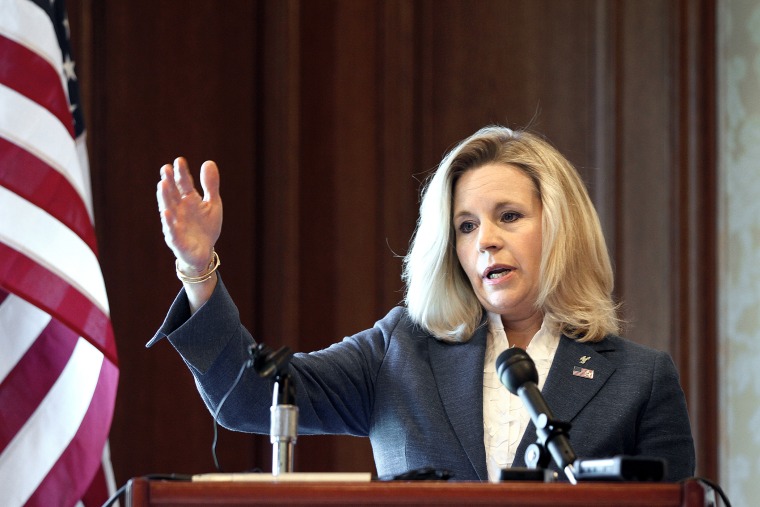Though votes from the 2018 midterm elections are still being tallied, we already have a sense of how significant this year's gender gap was at ballot boxes nationwide. Exit polls found men favoring Republicans by 4 points, while women preferred Democratic candidates by 19 points. That 23-point difference suggests this year's gender gap was among the largest -- if not the very largest -- ever recorded.
The issue is not, however, limited to the electorate. When the new Congress begins in January, the number of Republican women will shrink to its lowest levels since 1994, even as gender diversity among Democrats grows.
Rep. Kevin McCarthy (R-Calif.), who'll soon make the transition from Majority Leader to Minority Leader, said last week, "We have a lot of room to grow.... We have room for improvement."
With this in mind, Rep. Liz Cheney (R-Wyo.) is poised to become the House Republican conference chair -- the #3 position in the House GOP leadership -- and she'll have the highest leadership post ever held by a Republican woman. (Yes, Cathy McMorris Rodgers is the current House GOP conference chair, but for the majority party, that's the #4 post.)
Cheney told the Washington Post last week about her vision for improving her party's position among women voters.
"I think the Republicans have to get off of defense on this issue," Rep. Liz Cheney (R-Wyo.) said Friday in an interview.... [Cheney] does not see any need for course corrections on policies relating to women, arguing that Democrats create silos for female issues that treat women in a condescending way."I've always felt like it was very paternalistic to do what the Democrats do," she said. "It's offensive to women."
If this argument sounds at all familiar, it's because Tennessee's Marsha Blackburn (R-Tenn.), who'll soon join the Senate, made a similar argument a while back, insisting that proposals to guarantee pay equity between men and women are "condescending" to women.
In other words, to fight against discrimination is to insult those being discriminated against. It's a strange argument I won't pretend to understand.
But the larger takeaway remains the same: on the heels of election results in which women voters backed Democrats on a historic scale, Republicans don't intend to change direction ... at all.
Congressional GOP leaders have expressed an interest in recruiting more women to run as Republicans, but for much of the party, that doesn't much matter, either: a new CBS News poll found just 20% of Republican voters "think their party should make more effort to recruit women candidates." More than half of GOP voters said "this issue doesn't matter much to them."
